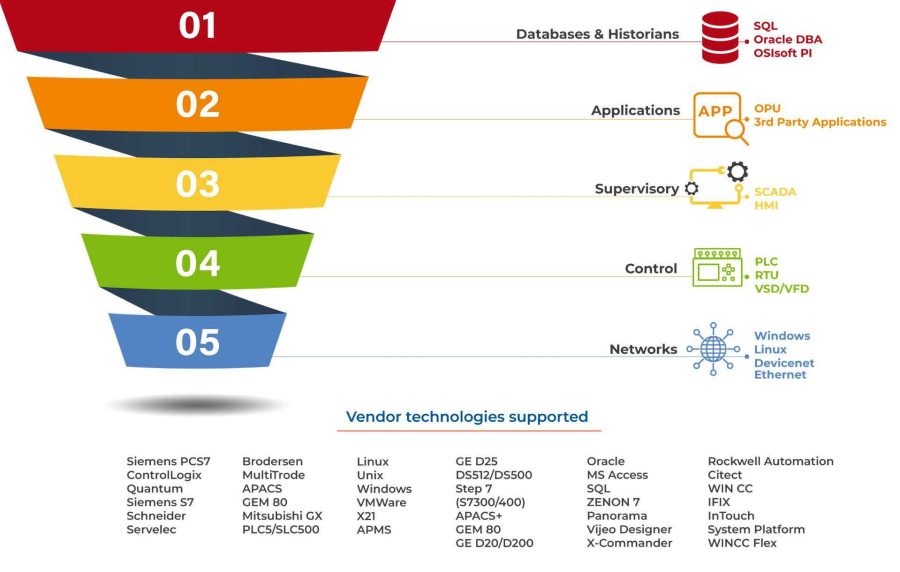CSR Technology: Driving Sustainable Business Practices
CSR technology is rapidly emerging as a crucial force in shaping responsible and sustainable business practices. By integrating cutting-edge technologies into their operations, companies can effectively address social and environmental […]

CSR technology is rapidly emerging as a crucial force in shaping responsible and sustainable business practices. By integrating cutting-edge technologies into their operations, companies can effectively address social and environmental challenges, enhance stakeholder engagement, and contribute to a more equitable and sustainable future.
From leveraging artificial intelligence to optimize resource allocation and reduce waste to utilizing blockchain technology for supply chain transparency and ethical sourcing, CSR technology empowers businesses to make a tangible impact on the world. This integration not only strengthens a company’s reputation but also fosters innovation and drives long-term business growth.
Defining CSR Technology
CSR technology refers to the use of technology to promote and support corporate social responsibility (CSR) initiatives. In today’s business landscape, where companies are increasingly held accountable for their social and environmental impact, CSR technology plays a crucial role in enabling organizations to measure, manage, and report on their sustainability performance.
Examples of CSR Technology
CSR technology encompasses a wide range of tools and platforms that help businesses integrate sustainability into their operations. Here are some prominent examples:
- Sustainability Management Software: These platforms provide comprehensive solutions for tracking and managing environmental, social, and governance (ESG) data, including carbon emissions, waste generation, and employee engagement.
- Supply Chain Transparency Tools: These technologies enable companies to trace the origin of their raw materials and products, ensuring ethical sourcing practices and responsible supply chains.
- Social Media Analytics: Social media platforms can be leveraged to monitor public sentiment towards a company’s CSR initiatives and identify areas for improvement.
- Data Visualization Tools: These tools help businesses present their sustainability data in an engaging and accessible way, making it easier for stakeholders to understand their impact.
- Blockchain Technology: Blockchain can be used to track and verify the authenticity of sustainable products, promoting transparency and accountability.
Benefits of Integrating CSR Technology
Integrating CSR technology into business operations offers numerous benefits, including:
- Enhanced Sustainability Performance: By providing data-driven insights and automation capabilities, CSR technology helps businesses improve their environmental and social performance.
- Improved Risk Management: CSR technology enables companies to identify and mitigate potential risks related to their sustainability practices, such as supply chain disruptions or reputational damage.
- Enhanced Stakeholder Engagement: By providing transparent and accessible information about their sustainability efforts, companies can build trust and strengthen relationships with stakeholders.
- Competitive Advantage: Companies that prioritize sustainability and leverage CSR technology can differentiate themselves in the marketplace and attract environmentally conscious customers and investors.
- Cost Savings: CSR technology can help businesses optimize resource usage, reduce waste, and improve efficiency, leading to cost savings.
Applications of CSR Technology

CSR technology has the potential to drive positive change across various industries and address critical social and environmental challenges. It encompasses a wide range of tools and approaches that enable organizations to measure, manage, and report on their social and environmental impacts, fostering transparency and accountability.
Examples of CSR Technology Applications Across Industries
CSR technology has proven its effectiveness in numerous industries, offering practical solutions to complex challenges.
- Sustainable Supply Chain Management: Companies like Walmart use blockchain technology to track the origin and ethical sourcing of products, ensuring transparency and traceability throughout the supply chain. This technology allows consumers to make informed choices about the products they purchase, promoting ethical sourcing practices.
- Environmental Monitoring and Reporting: Organizations can leverage remote sensing and data analytics to monitor environmental conditions, such as deforestation, pollution, and water quality. This data can be used to identify areas for improvement and track progress towards environmental sustainability goals. For example, the World Wildlife Fund uses satellite imagery and AI to monitor deforestation in the Amazon rainforest, helping to protect biodiversity and natural resources.
- Employee Engagement and Wellbeing: Companies are implementing employee engagement platforms that leverage data analytics to measure employee satisfaction, identify areas for improvement, and promote a positive work environment. These platforms can also be used to track employee volunteering and charitable contributions, fostering a culture of social responsibility within the organization.
- Community Development: CSR technology can facilitate community engagement and support initiatives that address local needs. For example, organizations can use online platforms to connect with local communities, identify needs, and develop targeted programs that address poverty, education, and healthcare.
Potential Applications of CSR Technology Across Sectors
The table below illustrates the potential applications of CSR technology across various sectors, highlighting the specific benefits and impacts:
| Sector | Technology Application | Example | Impact |
|---|---|---|---|
| Manufacturing | Energy Efficiency Monitoring | Using sensors and data analytics to track energy consumption and identify opportunities for optimization. | Reduced energy costs, lower carbon emissions, and improved environmental performance. |
| Retail | Sustainable Packaging Tracking | Implementing blockchain technology to track the lifecycle of packaging materials, ensuring responsible sourcing and recycling. | Reduced waste, increased recycling rates, and enhanced brand reputation for sustainability. |
| Finance | Impact Investing Platforms | Using online platforms to connect investors with socially responsible investment opportunities. | Increased funding for sustainable businesses and projects, promoting positive social and environmental impact. |
| Healthcare | Telemedicine and Remote Patient Monitoring | Leveraging technology to provide healthcare services remotely, improving access to care for underserved communities. | Enhanced healthcare access, reduced healthcare costs, and improved patient outcomes. |
| Education | Digital Learning Platforms | Using online platforms to provide educational resources and support to students in remote areas. | Improved access to education, increased learning opportunities, and reduced educational inequality. |
Impact of CSR Technology

CSR technology has a profound impact on various aspects of business operations, driving positive change in how organizations engage with stakeholders and contribute to a sustainable future.
Impact on Business Performance
CSR technology can enhance business performance by optimizing resource utilization, reducing operational costs, and improving risk management.
- Increased Efficiency and Productivity: By automating processes and streamlining workflows, CSR technology can enhance operational efficiency, leading to increased productivity and reduced waste. For instance, a company implementing a sustainability tracking platform can monitor energy consumption in real-time, identify areas for improvement, and optimize resource allocation. This results in cost savings and a reduced environmental footprint.
- Enhanced Risk Management: CSR technology can help organizations proactively identify and mitigate potential risks associated with their operations and supply chains. For example, a company using a supply chain transparency platform can track the ethical and environmental practices of its suppliers, reducing the risk of reputational damage and legal liabilities. This can lead to increased investor confidence and improved brand value.
- Improved Decision-Making: CSR technology provides access to real-time data and insights, enabling organizations to make informed decisions regarding their social and environmental impact. For instance, a company using a data analytics platform can analyze customer sentiment towards its sustainability initiatives, identify areas for improvement, and develop more effective strategies to engage stakeholders. This data-driven approach helps organizations to align their actions with their values and build trust with customers.
Impact on Stakeholder Engagement
CSR technology facilitates effective communication and engagement with stakeholders, fostering transparency and accountability.
- Improved Transparency and Communication: CSR technology enables organizations to communicate their sustainability efforts and progress transparently with stakeholders. For example, a company using a sustainability reporting platform can publish detailed information about its environmental performance, social impact, and governance practices. This transparency builds trust with stakeholders and enhances accountability.
- Enhanced Stakeholder Dialogue: CSR technology platforms provide opportunities for organizations to engage in meaningful dialogue with stakeholders. For example, a company using a social media platform can interact with customers and respond to their concerns regarding its sustainability practices. This direct engagement fosters a sense of ownership and encourages collaboration in achieving shared goals.
- Personalized Stakeholder Engagement: CSR technology allows organizations to personalize their communication and engagement efforts based on stakeholder preferences. For example, a company using a CRM platform can segment its stakeholders based on their interests and tailor its communication accordingly. This personalized approach enhances the effectiveness of stakeholder engagement and ensures that messages are relevant and impactful.
Impact on Sustainability
CSR technology plays a crucial role in driving sustainable practices and promoting a circular economy.
- Reduced Environmental Impact: CSR technology enables organizations to monitor and reduce their environmental footprint. For example, a company using a waste management platform can track and optimize its waste disposal practices, minimizing its impact on landfills and promoting resource recovery. This can lead to significant reductions in greenhouse gas emissions and other environmental pollutants.
- Increased Resource Efficiency: CSR technology promotes resource efficiency by optimizing resource utilization and reducing waste. For example, a company using a water management platform can monitor its water consumption and identify opportunities for conservation. This can lead to significant cost savings and a reduced environmental impact.
- Promotion of Circular Economy: CSR technology facilitates the transition towards a circular economy by promoting the reuse, repair, and recycling of products. For example, a company using a product lifecycle management platform can track the end-of-life of its products and develop strategies for reuse and recycling. This approach minimizes waste and reduces the environmental impact of production and consumption.
Metrics for Measuring Effectiveness
To evaluate the effectiveness of CSR technology initiatives, organizations can utilize a range of metrics that assess their impact on business performance, stakeholder engagement, and sustainability.
- Financial Performance: Metrics such as return on investment (ROI), cost savings, and revenue growth can be used to assess the financial impact of CSR technology initiatives. For example, a company implementing a sustainability tracking platform can measure the ROI of its investments in energy efficiency projects by analyzing the cost savings achieved.
- Stakeholder Engagement: Metrics such as customer satisfaction, employee engagement, and investor confidence can be used to assess the impact of CSR technology initiatives on stakeholder relationships. For example, a company using a social media platform can track the number of followers, engagement rates, and positive sentiment towards its sustainability initiatives.
- Environmental Performance: Metrics such as greenhouse gas emissions, water consumption, and waste generation can be used to assess the environmental impact of CSR technology initiatives. For example, a company using a waste management platform can track the amount of waste diverted from landfills and the percentage of recycled materials used in its products.
- Social Impact: Metrics such as community engagement, human rights compliance, and diversity and inclusion can be used to assess the social impact of CSR technology initiatives. For example, a company using a supply chain transparency platform can track the working conditions and labor rights practices of its suppliers.
Challenges and Opportunities
Implementing CSR technology presents both challenges and opportunities for organizations.
- Data Integration and Management: Integrating data from various sources and managing it effectively can be a challenge. Organizations need to establish robust data management systems and ensure data accuracy and consistency.
- Cost of Implementation: Implementing CSR technology can involve significant upfront costs, including software licenses, hardware infrastructure, and training. Organizations need to carefully assess the costs and benefits before investing in these technologies.
- Resistance to Change: Some employees and stakeholders may resist adopting new technologies. Organizations need to effectively communicate the benefits of CSR technology and provide adequate training to ensure smooth adoption.
- Lack of Standardization: The lack of standardized metrics and reporting frameworks can make it difficult to compare the performance of different CSR technology initiatives. Organizations need to advocate for greater standardization to facilitate meaningful comparisons and progress monitoring.
- Emerging Technologies: The rapid evolution of CSR technology presents both opportunities and challenges. Organizations need to stay abreast of the latest advancements and adapt their strategies accordingly.
Emerging Trends in CSR Technology
The field of CSR technology is constantly evolving, with new advancements and trends emerging rapidly. These advancements are driven by the increasing need for businesses to demonstrate their commitment to sustainability and social responsibility. Some of the key emerging trends include the use of artificial intelligence (AI), blockchain, and the Internet of Things (IoT).
Artificial Intelligence for Social Impact
AI is revolutionizing the way businesses operate, and its potential for social impact is immense. By leveraging AI, companies can address various social and environmental challenges.
- Predictive Analytics for Disaster Relief: AI can analyze large datasets to predict natural disasters and optimize relief efforts. For example, AI-powered systems can analyze weather patterns and identify areas at risk of flooding, allowing for timely evacuations and resource allocation.
- Personalized Education and Training: AI can personalize educational content and training programs to cater to individual learning styles and needs. This can help bridge the skills gap and empower marginalized communities.
- Inclusive Financial Services: AI can facilitate access to financial services for underserved populations. AI-powered platforms can analyze creditworthiness based on alternative data sources, enabling individuals with limited credit history to access loans and other financial products.
Blockchain for Supply Chain Transparency
Blockchain technology provides a secure and transparent way to track products and materials throughout the supply chain. This transparency can help businesses ensure ethical sourcing practices and reduce environmental impact.
- Traceability of Raw Materials: Blockchain can track the origin and journey of raw materials, ensuring that they are sourced sustainably and ethically. For example, companies can use blockchain to track the provenance of cocoa beans, ensuring they are not sourced from areas with child labor or deforestation.
- Reduced Counterfeiting and Fraud: Blockchain can help prevent counterfeiting and fraud by providing an immutable record of product origin and authenticity. This can benefit consumers and protect businesses from financial losses.
- Improved Supply Chain Efficiency: Blockchain can streamline supply chain operations by automating processes and reducing paperwork. This can lead to faster delivery times, reduced costs, and improved sustainability.
Internet of Things for Environmental Monitoring
The Internet of Things (IoT) enables the collection and analysis of real-time data from sensors deployed in the environment. This data can be used to monitor environmental conditions, optimize resource use, and reduce pollution.
- Smart Cities and Sustainable Infrastructure: IoT sensors can monitor air quality, traffic flow, and energy consumption in cities, enabling data-driven decision-making for sustainable urban development.
- Precision Agriculture and Water Management: IoT sensors can collect data on soil moisture, temperature, and other environmental factors, allowing farmers to optimize irrigation and fertilizer use, reducing water consumption and environmental impact.
- Waste Management and Recycling: IoT sensors can track waste levels and optimize waste collection routes, reducing transportation costs and improving recycling rates.
Best Practices for CSR Technology Integration
Integrating CSR technology into business strategies is crucial for achieving sustainable growth and positive societal impact. By leveraging technology, businesses can streamline their CSR initiatives, measure their impact, and build stronger relationships with stakeholders. This section provides a comprehensive guide for developing and implementing a successful CSR technology program.
Defining Clear Objectives and Goals
Before embarking on any CSR technology integration, it’s essential to define clear objectives and goals. This involves identifying specific areas of focus, such as environmental sustainability, social responsibility, or ethical sourcing. Businesses should set measurable targets for their CSR initiatives and track their progress over time.
Choosing the Right Technology
The choice of technology depends on the specific objectives and goals of the CSR program. Businesses should evaluate various options, including:
- Data Management Platforms: These platforms help businesses collect, analyze, and report on CSR data. Examples include Salesforce, SAP, and Oracle.
- Sustainability Reporting Software: This software assists businesses in creating comprehensive sustainability reports that meet industry standards. Popular options include GRI (Global Reporting Initiative) Software and SASB (Sustainability Accounting Standards Board) Software.
- Social Impact Measurement Tools: These tools enable businesses to measure the social impact of their initiatives. Examples include B Impact Assessment, Social Return on Investment (SROI) calculators, and Impact Reporting Frameworks.
- Supply Chain Management Software: This software helps businesses manage their supply chains ethically and sustainably. Examples include EcoVadis, Sedex, and Fairtrade.
- Employee Engagement Platforms: These platforms encourage employee participation in CSR initiatives and promote a culture of sustainability. Examples include Salesforce Philanthropy Cloud, Benevity, and GivePulse.
Developing a Comprehensive Implementation Plan, Csr technology
A well-defined implementation plan is crucial for successful CSR technology integration. This plan should Artikel:
- Project Scope: Define the specific areas of focus and the technology to be used.
- Timeline: Set realistic timelines for each stage of the implementation process.
- Budget: Allocate sufficient resources for technology acquisition, implementation, and ongoing maintenance.
- Stakeholder Engagement: Involve key stakeholders, including employees, customers, and suppliers, in the planning and implementation process.
- Training and Support: Provide adequate training and support to ensure that employees are proficient in using the new technology.
Ensuring Data Accuracy and Integrity
Data accuracy and integrity are essential for meaningful CSR reporting and decision-making. Businesses should:
- Establish Data Governance Policies: Implement policies to ensure the collection, storage, and use of data in a responsible and ethical manner.
- Use Reliable Data Sources: Ensure that data is collected from credible sources and verified for accuracy.
- Implement Data Security Measures: Protect sensitive data from unauthorized access and breaches.
Measuring and Reporting on Impact
Regularly measuring and reporting on the impact of CSR initiatives is crucial for demonstrating progress and accountability. Businesses should:
- Define Key Performance Indicators (KPIs): Identify relevant metrics to track the effectiveness of CSR initiatives.
- Use Data Visualization Tools: Utilize charts, graphs, and other visual representations to communicate CSR data effectively.
- Publish Transparent Reports: Create comprehensive and transparent reports that showcase the impact of CSR initiatives.
Continuously Evaluating and Improving
CSR technology integration is an ongoing process that requires continuous evaluation and improvement. Businesses should:
- Conduct Regular Reviews: Evaluate the effectiveness of CSR technology and identify areas for improvement.
- Seek Feedback from Stakeholders: Gather feedback from employees, customers, and other stakeholders to gain insights into the impact of CSR initiatives.
- Stay Updated on Emerging Trends: Monitor advancements in CSR technology and adapt their programs accordingly.
Resources and Tools
Numerous resources and tools are available to support businesses in their CSR technology efforts:
- CSR Technology Providers: Companies like Salesforce, SAP, and Oracle offer specialized solutions for CSR management.
- Sustainability Reporting Frameworks: GRI (Global Reporting Initiative) and SASB (Sustainability Accounting Standards Board) provide frameworks for standardized sustainability reporting.
- Social Impact Measurement Organizations: B Lab, Social Venture Network, and the Global Impact Investing Network offer resources and tools for measuring social impact.
- Industry Associations: Organizations like the World Business Council for Sustainable Development (WBCSD) and the United Nations Global Compact (UNGC) provide guidance and support for CSR initiatives.
- Government Agencies: Agencies like the Environmental Protection Agency (EPA) and the Department of Labor offer resources and incentives for businesses engaging in sustainable practices.
Final Review

As CSR technology continues to evolve, businesses have a unique opportunity to harness its power to create a positive and lasting impact. By embracing innovation and prioritizing ethical practices, companies can become agents of change, driving a more sustainable and equitable future for all.
CSR technology is becoming increasingly sophisticated, requiring a strong foundation in information technology. If you’re looking to build your skills in this area, consider working with an information technology tutor who can provide personalized guidance and support. This will help you develop the technical expertise needed to navigate the complexities of CSR technology and contribute to a more sustainable future.










